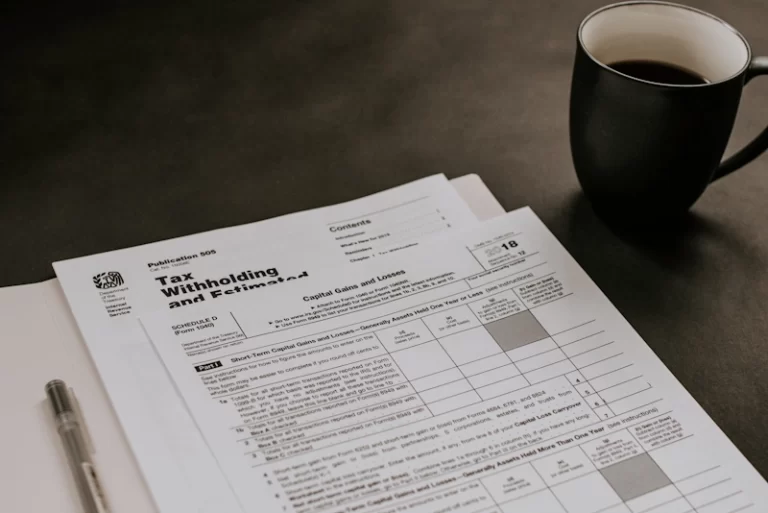Starting a business in a foreign country can be daunting, but in Singapore, company registration is straightforward. With business-friendly policies, attractive tax benefits, and a streamlined registration process, Singapore is a preferred destination for entrepreneurs looking to establish companies.
This guide covers the step-by-step procedure for company registration in Singapore, the various business entity types, an overview of costs and requirements, and more. Whether a local resident or foreign business owner, registering a company in Singapore offers many benefits that make it worthwhile.
Begin Your Business Journey in Singapore
There are compelling reasons why entrepreneurs worldwide feel compelled to register their companies in Singapore: –
Why Establish a Company in Singapore
Singapore’s accounting and tax benefits, plus simple company registration, attracts numerous foreign companies. The robust accounting framework makes Singapore preferable for the establishment of a financial base. Additionally, an attractive territorial tax system, incentives, and treaties with various countries make Singapore tax-efficient.
Corporate service providers will assist with new registrations. Navigating local requirements when starting a business abroad can be challenging. Fortunately, Singapore’s providers offer registration assistance, accounting, tax filing, and other corporate services to streamline the process.
Business licensing requirements and company registration are straightforward. Singapore’s well-defined, transparent business licensing framework enables entrepreneurs to easily acquire necessary licenses and permits to register and operate.
Diverse corporate structures cater to different activities. Sole proprietorships, partnerships, limited liability partnerships, private limited and public limited companies – Singapore caters to diverse activities, providing flexibility in choosing suitable legal entities.
Capital gains tax exemption makes Singapore favorable. The capital gains tax exemption, combined with business-friendly policies, bolsters overall company valuation and makes Singapore attractive for selling businesses or investing in capital assets.
Types of Singapore Business Entities
When registering, understanding the various entities is key. Each has unique requirements and benefits, so entrepreneurs can choose what best suits their needs.
Limited liability partnerships offer liability protection. Limited liability partnerships (LLPs) combine partnership and company benefits, allowing partners to have limited liability like company shareholders – ideal for lawyers, accountants, architects seeking liability protection.
Sole proprietorship requirements are clear. A sole proprietorship is the simplest entity, owned and operated by one individual.
Local companies benefit from incentives and support. Local companies, registered in Singapore, benefit from activities, government backing, and incentives – a popular choice.
Name reservation guidelines are straightforward. Entrepreneurs must adhere to name reservation guidelines when registering, choosing names not identical or similar to others, non-infringing on trademarks and copyrights.
Resident director eligibility requirements are defined. Appointing a local resident director is compulsory. Their eligibility requirements are clearly outlined, ensuring competent representation fulfilling legal obligations.
Demystifying Singapore’s Company Registration Process
Registering involves several requirements, but the efficient, uncomplicated process makes it achievable:
Step-By-Step Registration of Companies
A registered address is required for correspondence. This must be a physical Singapore address, not a P.O. Box, used for official communication.
Corporate bank account follows registration. After company registration, entrepreneurs must open a Singapore corporate bank account.
ACRA maintains confidentiality. Singapore’s registrar, the Accounting and Corporate Regulatory Authority (ACRA), keeps sensitive company information highly confidential. This provides peace of mind during registration.
Nominee services assist foreign owners. Without local directors, permanent resident nominee director services can fulfill the requirement for foreigners registering Singapore companies.
Expected Registration Duration
New companies are usually registered within days. Provided that requirements are met and documents promptly submitted.
Foreign companies may have longer timelines. While it is generally swift, additional checks for foreign companies can prolong registration slightly.
Guidelines facilitate foreign registrations. The Ministry of Manpower guidelines help streamline foreign company registrations.
Citizen nominees aid registrations. Lacking local directors, foreign owners can appoint citizen nominee directors.
Certificate of incorporation proves registration. This crucial document is needed for activities like opening bank accounts, contracts, licensing, etc.
The Financial Aspects of Registration
Entrepreneurs must understand the costs involved, from registration fees to ongoing filing requirements.
Cost Estimate to Register a Company in Singapore
Upfront cost disclosure aids understanding. Singapore’s business registration services disclose costs early for clarity on financial commitment.
Detailed breakdowns are usually provided. These cover government fees, service fees, name reservation, and any extra services needed.
Annual filing costs are predictable. In addition to registration costs, annual filing requirements should be budgeted for as the government guidelines make these predictable.
We explore key considerations for foreign business owners and any special requirements.
Key Considerations for Foreigners
Understanding requirements as a foreigner is vital. Foreign entrepreneurs must learn the business registration and local business environment requirements in Singapore for a smooth registration. Professional assistance simplifies the process.
Local resident director requirements apply. Companies require at least one local director as competent representation fulfilling legal obligations. Foreign entrepreneurs should note this.
Eligibility rules apply to foreigners. Registration eligibility for foreign owners may include valid work passes, local addresses, and industry requirements.
Name guidelines apply equally. When registering, foreign owners must follow Singapore’s company name reservation guidelines. Understanding the regulations ensures compliance.
Capital gains tax benefits matter. Singapore’s capital gains tax exemption makes it attractive for foreign entrepreneurs to maximize profits.
Special Foreign Business Owner Requirements
Specialist incorporation services assist foreigners. Singapore offers specialist company incorporation guiding and supporting foreign entrepreneurs through localized expertise and understanding.
Licensing is critical for operations. Depending on activities, foreign owners may need licenses and permits to legally operate in Singapore. Securing these timely is crucial.
Accountants play a major role. Public accountants’ mandatory services like auditing and tax filing are vital for foreign owners to note during registration.
Corporate service providers advice on requirements. These providers have expansive knowledge concerning company registration requirements and procedures for foreign entrepreneurs.
General registration requirements apply equally. Share capital, registered addresses and director eligibility rules apply to both foreign and local owners.
Post-Registration Formalities and Requirements
After incorporation, certain formalities and requirements maintain compliance and smooth operations:
What Happens After Incorporation of a Singapore Company
Business profiles provide company information. After registration, business profiles become available showing company address, secretary, directors, shareholders, etc. Entrepreneurs can securely access this online.
Secure online access enables efficiency. This portal allows entrepreneurs timely information access in a secure, efficient manner.
Incorporation email confirms registration. Upon successful registration, entrepreneurs receive email notification confirming the certificate of incorporation issuance in Singapore, serving as registration proof for secure retention.
Guidelines govern sensitive information. The online portal includes guidelines regarding safeguarding confidential company information and complying with regulations.
Foreigners receive post-registration guidelines. Depending on activities or requirements, foreign entrepreneurs may receive guidelines on any further steps needing fulfillment.
Ongoing Compliance Requirements
Compliance is crucial for Singapore companies. ACRA guidelines ensure company adherence to local laws and regulations. Entrepreneurs should familiarize themselves with these.
Industry guidelines may apply additionally. Depending on activities, companies may have specific guidelines and requirements needing compliance. Understanding these avoids regulatory issues.
Annual filing maintains compliance. Entrepreneurs must file annual returns, hold annual general meetings and update ACRA company information as regulations require.
Leveraging Singapore’s Pro-Business Policies
A key Singapore benefit is supportive, business-friendly governmental policies.
Why Singapore Appeals to Entrepreneurs
Robust accounting framework provides benefits. Singapore’s reliable accounting makes financial record-keeping and regulatory compliance achievable for companies.
Tax incentives create efficiency. Territorial tax system, incentives, treaties make Singapore tax-efficient, benefiting companies looking to maximize profits.
Capital gains tax exemption aids foreigners. Foreign entrepreneurs additionally benefit from Singapore’s capital gains tax exemption when selling businesses or investing in capital assets, without incurring extra tax liabilities.
Streamlined licensing supports business. By ensuring entrepreneurs have necessary licenses and permits, Singapore’s efficient licensing framework endorses companies’ secure regulatory environment and operations.
Frequently Asked Questions
What are the costs to register a company?
While fees vary, expect SGD 300 processing fee for private limited companies – a popular Singapore structure. Plus, SGD 15 for company name registration. Additional fees may apply for services like name application, nominee director, share capital, registered address, etc. Consult professionals for accurate understanding of all costs.
What are the registration requirements?
These include appointing at least one local director either citizens or permanent residents and one shareholder, who can be either citizens, permanent residents or foreigners having a local registered office address and minimum SGD 1 paid-up capital. Within six months, appoint a qualified company secretary.
Conclusion
Follow the step-by-step process for smooth company registration. Consider the financial aspects and costs involved. For foreigners, note specific considerations and requirements. After incorporation, fulfill post-registration formalities and ongoing compliance. Leverage Singapore’s appealing pro-business policies offering registered companies many benefits. Contact professionals to assist with your Singapore business journey and registration process.





